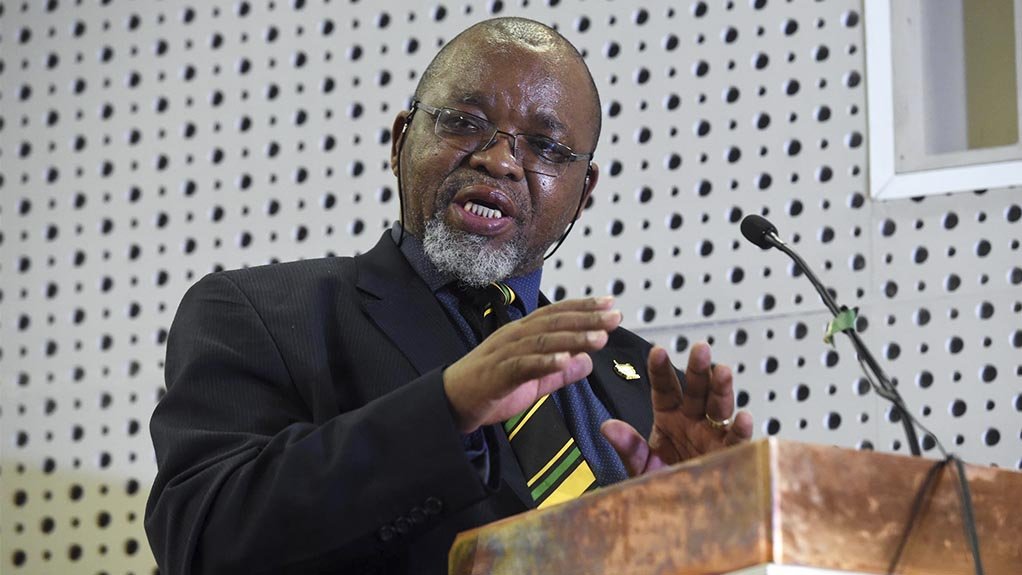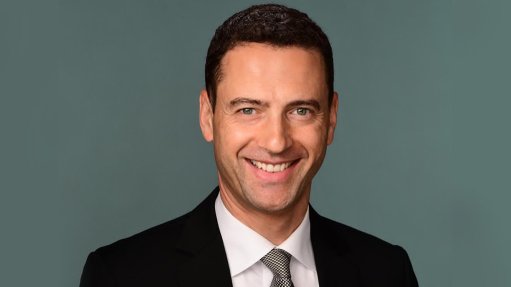South Africa needs oil, gas, nuclear, as well as renewables – Mantashe
Delivering the keynote address at the Enlit Africa conference in Cape Town on Wednesday, South African Mineral Resources and Energy Minister Gwede Mantashe reported that the current moratorium on the development of the country’s shale gas resources would be lifted. Any subsequent Court challenges would be met.
The country would go ahead with the development of its oil and gas resources, despite Court challenges. South Africa needed oil and gas. He was also seeking to revive the State-owned oil company, PetroSA, which had been subjected to “asset-stripping”.
He further highlighted his view of the just energy transition (from high-carbon emissions to low-carbon emissions generating technologies). He did so while talking about the need to update the country’s Integrated Resources Plan 2019. He affirmed that it did not mean "moving from coal to renewables", but it meant moving from high-carbon emission to low-carbon emission generation. It would require a mix of technologies to achieve this transition.
He noted that switching a power station from coal-fired to gas-fired would cut its emissions by 50%. It would still emit carbon, but much less.
He further observed that, while South Africans tended to be worried about nuclear power, the country’s Koeberg nuclear power plant had shown itself to be very safe. It had operated safely for 40 years and today produced the lowest cost electricity in the country, cheaper even than renewables. Nuclear was expensive upfront, but was cheap over the long term. South Africa needed nuclear energy.
Mantashe also addressed the future of the country’s electricity transmission system. “We’re establishing a transmission system that is standalone,” he told the delegates. “Transmission must be a standalone entity. A market and a wheeler of electricity.”
The creation of such a separate transmission entity was first proposed some years ago, he noted, but the plans had been paused because, at the time, State-owned national electricity utility Eskom had been the only generator of electricity in the country. But things had now changed, thanks to the independent power producers programme. There were now a growing number of electricity generators in the country, making an electricity market and electricity wheeling practical. He expressed the hope that the legislation necessary to create the standalone transmission entity would be passed and signed this year.
Regarding transmission, he cautioned that independent power producer renewable energy projects had, currently, to be located in regions of the country that were both suitable for the selected technology and had strong grid infrastructure. He referred to the case of a wind energy project planned for the Northern Cape that could not go ahead because the grid infrastructure in that province was weak.
He highlighted the major investments being made in embedded generation by South African companies, particularly by mining groups. (He digressed to stress the role the mining sector had played, saving the South African economy, during the Covid-19 pandemic.) “We actually deregulated embedded generation,” he pointed out. But he cautioned that the government was under no obligation to buy any surplus electricity produced by embedded power plants.
Mantashe affirmed that, in South Africa, the State would always be involved in energy generation, because it was a public necessity. But, he assured, private sector electricity generation must be allowed to grow.
Article Enquiry
Email Article
Save Article
Feedback
To advertise email advertising@creamermedia.co.za or click here
Press Office
Announcements
What's On
Subscribe to improve your user experience...
Option 1 (equivalent of R125 a month):
Receive a weekly copy of Creamer Media's Engineering News & Mining Weekly magazine
(print copy for those in South Africa and e-magazine for those outside of South Africa)
Receive daily email newsletters
Access to full search results
Access archive of magazine back copies
Access to Projects in Progress
Access to ONE Research Report of your choice in PDF format
Option 2 (equivalent of R375 a month):
All benefits from Option 1
PLUS
Access to Creamer Media's Research Channel Africa for ALL Research Reports, in PDF format, on various industrial and mining sectors
including Electricity; Water; Energy Transition; Hydrogen; Roads, Rail and Ports; Coal; Gold; Platinum; Battery Metals; etc.
Already a subscriber?
Forgotten your password?
Receive weekly copy of Creamer Media's Engineering News & Mining Weekly magazine (print copy for those in South Africa and e-magazine for those outside of South Africa)
➕
Recieve daily email newsletters
➕
Access to full search results
➕
Access archive of magazine back copies
➕
Access to Projects in Progress
➕
Access to ONE Research Report of your choice in PDF format
RESEARCH CHANNEL AFRICA
R4500 (equivalent of R375 a month)
SUBSCRIBEAll benefits from Option 1
➕
Access to Creamer Media's Research Channel Africa for ALL Research Reports on various industrial and mining sectors, in PDF format, including on:
Electricity
➕
Water
➕
Energy Transition
➕
Hydrogen
➕
Roads, Rail and Ports
➕
Coal
➕
Gold
➕
Platinum
➕
Battery Metals
➕
etc.
Receive all benefits from Option 1 or Option 2 delivered to numerous people at your company
➕
Multiple User names and Passwords for simultaneous log-ins
➕
Intranet integration access to all in your organisation





















